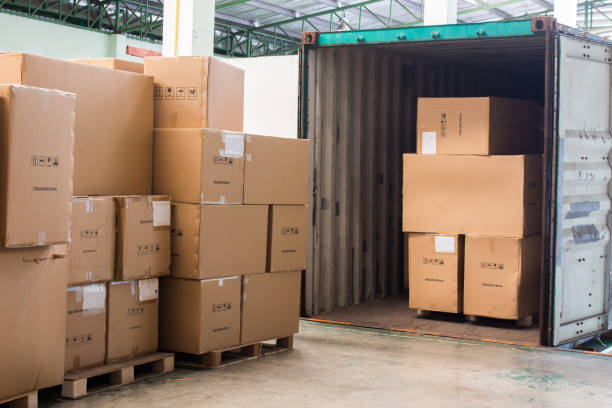Everything You Should Know About Broken Cassia Before Buying in 2025
Everything You Should Know About Broken Cassia Before Buying in 2025
Table of Contents
- Introduction: What Is Broken Cassia?
- Types of Broken Cassia Available for Export
- Key Specifications You Must Check Before Buying
- Why Volatile Oil and Moisture Matter So Much
- Common Packaging Formats for Bulk Shipments
- How Broken Cassia Is Used Across Industries
- Red Flags in Low-Grade Broken Cassia
- What Makes Vietnamese Broken Cassia So Popular?
- Cost Considerations When Buying in Bulk
- Documents Required for Export and Import Clearance
- 5 Tips to Source Broken Cassia with Confidence
- Why Buyers Worldwide Choose Tinimex
- Contact Tinimex – Reliable Bulk Cassia Exporter
1. Introduction: What Is Broken Cassia?
Broken cassia is the sliced or fractured bark of the cassia cinnamon tree, offered in sizes typically ranging from 2 to 8 centimeters. It’s favored by spice buyers, essential oil manufacturers, and food processors due to its:
- Strong aroma
- Higher surface area
- Cost-effectiveness compared to sticks
Buying it in bulk can be an excellent strategic move—but only when you know what to look for.
2. Types of Broken Cassia Available for Export
Not all broken cassia is created equal. Common classifications include:
- Whole Stick Rejects: Larger bark but broken form
- Cut-Grade Broken Cassia: Evenly sliced, 2–8 cm length
- Dust-Free Export Grade: Clean, brushed, no bark powder
Tinimex primarily exports cut-grade, brushed, VO-certified broken cassia with standard moisture control.
3. Key Specifications You Must Check Before Buying
Whether you’re importing 1 ton or 100, always check these:
- Volatile Oil (VO): Should be ≥ 2.5%
- Moisture Content: Under 12% preferred
- Size: 2–8 cm, uncurled, non-powdery
- Appearance: Uniform color, reddish-brown, no mold or insects
- Cleanliness: No foreign matter, stones, or twig fragments

4. Why Volatile Oil and Moisture Matter So Much
- Volatile Oil (VO): The higher the VO%, the stronger the aroma, flavor, and essential oil yield.
- Moisture: High moisture (>13%) encourages mold, reduces shelf life, and fails port checks.
All Tinimex batches include COA to prove compliance.
5. Common Packaging Formats for Bulk Shipments
Exporters may offer:
- PE-lined kraft cartons (10–20kg) – Ideal for dry, sealed stacking
- Woven PP bags (not preferred) – Poor moisture control
- Tinimex standard: 20kg PE-lined cartons, labeled, batch-coded, and shrink-wrapped on pallet

6. How Broken Cassia Is Used Across Industries
✅ Food: Curry powder, five spice blends, syrups
✅ Tea & Beverages: Chai blends, cider infusions
✅ Pharmaceutical: Traditional medicine, digestive extracts
✅ Essential Oils: Distilled for fragrance, soap, and flavoring
✅ Incense/Wellness: Base spice in natural incense sticks
7. Red Flags in Low-Grade Broken Cassia
🚩 Mixed in bark dust or foreign particles
🚩 Inconsistent size: some sticks, some powder
🚩 Greyish, dull, or overly dark color
🚩 Moldy smell or white speckling
🚩 No documentation provided (COA, fumigation, etc.)
8. What Makes Vietnamese Broken Cassia So Popular?
- Naturally high VO content (2.5–3.5%)
- Hard bark structure ideal for long infusions
- Strong color and aroma, easy to differentiate
- Trusted in global markets: EU, US, India, UAE, Japan
Tinimex exports to over 25 countries with full QA and traceability.
9. Cost Considerations When Buying in Bulk
Factors that affect price:
- Quality level and VO %
- Season of harvest (wet vs dry)
- Packaging type and shipping method
- Quantity (MOQ usually 1–5 tons)
💡 Tip: Don’t just compare per-ton price. Compare usable yield and VO concentration.
10. Documents Required for Export and Import Clearance
From a trusted exporter, you should always get:
- Commercial invoice with HS code
- Packing list with batch info
- Certificate of Origin (CO)
- COA (Certificate of Analysis) with VO & moisture
- Phytosanitary certificate
- Fumigation certificate
Tinimex includes all above in every shipment.
11. 5 Tips to Source Broken Cassia with Confidence
✅ Request actual batch photos and not just catalog samples
✅ Ask for VO and moisture lab test before booking
✅ Confirm cut size and brushing method
✅ Review Incoterms and lead times carefully
✅ Choose exporters with multiple country references
12. Why Buyers Worldwide Choose Tinimex
- 10+ years of cassia export experience
- Organic, HACCP, and COA available upon request
- Full support for documentation and inspection
- Consistent aroma, quality, and packing
- Competitive FOB/CIF pricing with fast logistics
13. Contact Tinimex – Reliable Bulk Cassia Exporter
TINIMEX CO., LTD
🏢 4th Floor, No. 40 Ngo Gia Tu Street, Duc Giang Ward, Long Bien District, Ha Noi, Vietnam
📧 info@tinimex.com
🌐 https://tinimex.com
📞 +84 36 680 8683 (WhatsApp / Zalo)
Internal Links:
External Link:

